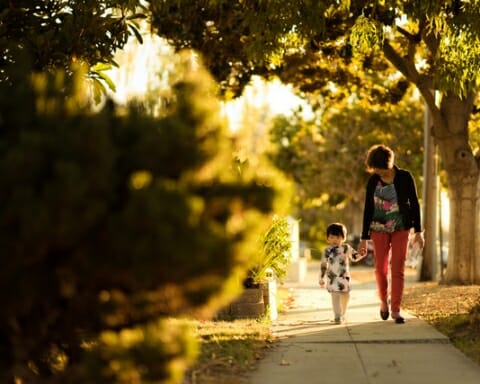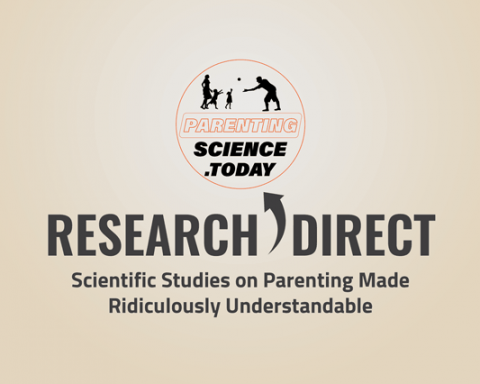Parenting, also known as child-rearing, is the process of raising a child from birth to adulthood. According to this book, the entire process of becoming a parent or merely the act of raising a child and, to a broader extent, caring for a person like a parent are all forms of parenting.
As one scientific study clearly states, parenting is the process of promoting and supporting the physical, emotional, social, and intellectual development of a child from infancy to adulthood. Parenting, therefore, is a lifelong process because the growth and development of a child continue well into adulthood.
Parenting Pillars
Parenting is an all-inclusive process that encompasses several elements, which culminate in the full growth and development of a child. The three major components of parenting are:
- Physical attention and care. A child’s physical needs include but are not limited to food, clothing, shelter, medicine, exercise, safety, and security.
- Care and nurturing. Care and nurturing is a parent’s conscious effort to give their child affection, love, and care. It involves creating a sense of belonging and showing the child appreciation and support in order to help him or her build a positive personality. Giving attention and encouragement ensures the development of an emotionally stable child.
- Parental guidance. Parents are responsible for teaching their child the values of right and wrong and for instilling in their child the moral expectations of society. This will help develop the child’s social and intellectual sense of well-being.
Types of Parents
A parent is, in most cases, the primary caregiver of a child. Any person who performs parenting duties for a child is referred to as a parent. Therefore, there are several types of parents, such as those listed below.
- Biological parent. Biological parents are the two people (a man and a woman) who conceive a child. The genes of the parents and the child are a 50 percent (or more) match.
- Adoptive parent. Adoptive parents undergo a legal procedure to become the primary caregivers of a child who is not their biological child. The child is then by law an official member of that particular family or individual.
- Stepparent. A stepparent is the parent of a child from his or her spouse’s previous marriages or relationships.
- Caregiver. Caregivers are people who provide parental care to children. Caregiving could be a short-term arrangement or a long-term arrangement. Childcare workers are the best examples of caregivers.
- Guardian. A guardian is appointed by a legal body to help raise a child. Guardianship usually ends when the child comes of age.
- Foster parent. A foster parent is someone who temporarily assumes the parental role for a child who has been moved from his or her home for one reason or another. Foster parents are appointed through a legal procedure.
Different Parenting Styles
Parenting styles vary from parent to parent and are influenced by various factors, such as culture, social class, income and wealth. The types of parenting styles include:
- Authoritative parenting. Authoritative parents use positive reinforcement and minimal punishment. There is mutual communication between the parent and the child. Fair and consistent discipline helps the child learn good behavior. Children of authoritative parents have better personal and social relations and high levels of self-esteem.
- Authoritarian parenting. Parents who use the authoritarian parenting style are rigid and less understanding of their child’s needs. As a result, they punish their child more often. They totally disregard the child’s feelings and desires, which results in a withdrawn and moody child who is vulnerable and unstable.
- Permissive parenting. Permissive parents give in to all their children’s demands and provide for all their needs. Permissive parents highly value the freedom and happiness of their children. The parents use minimal punishment, and the children are mostly happy but have low self-control due to a lack of proper guidance and discipline.
- Uninvolved parenting. Uninvolved parents are absent both emotionally and physically. They are not responsive to their children’s physical and emotional needs, so the children often make their own decisions. The children are well provided for, but they have little or no expectations or accountability. The lack of communication and the physical detachment between the parents and the children result in deviant behaviors and children who are socially withdrawn.
Parenting is both an intense and exciting endeavor. It should be done with care and commitment. Parenting, when treated seriously, results in children who are well-developed physically, emotionally, socially, intellectually, and morally.
Parents should adequately prepare and train beforehand in order to avoid any consequences that will directly affect the child’s growth and development. A study of children and parenting shows that when a parent is ready for parenthood, it not only prevents stress and depression but also avoids exposing children to wrong parenting methods, resulting in children with positive personalities and strong social relations.

References
- Hill, John Lawrence. “What Does It Mean to Be a ‘Parent’? The Claims of Biology as the Basis for Parental Rights.” In Parental Rights and Responsibilities. Edited by Stephen Gilmore, 29–96. London: Routledge, 2017. Retrieved from https://www.taylorfrancis.com
- Bornstein, Marc H. “Parenting: Science and Practice.” Parenting 1, no. 1–2 (2001): 1–4. Retrieved from https://www.tandfonline.com













